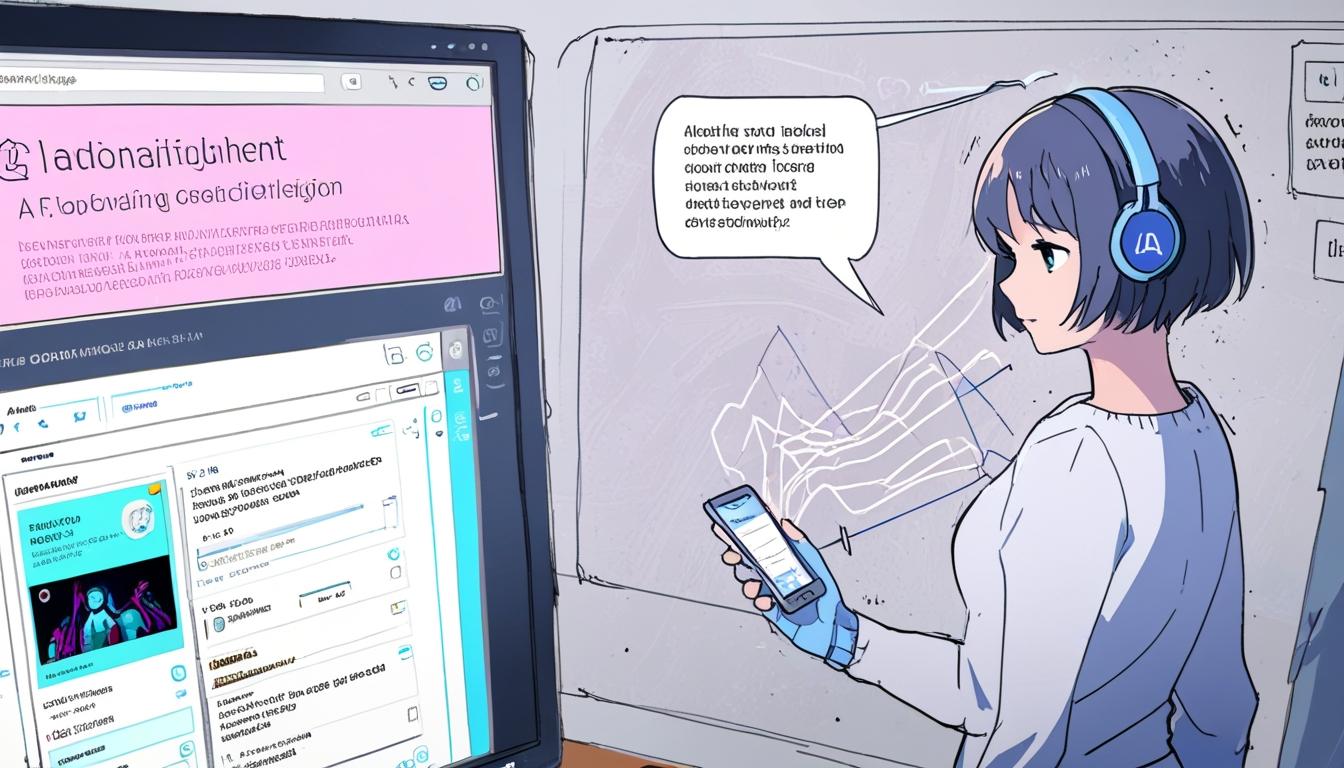As millions turn to AI chatbots like ChatGPT for information, companies are developing new optimisation strategies to enhance brand presence in AI-generated search results, signalling a paradigm shift in digital marketing and search engine tactics.
Advertising and technology sectors are swiftly adapting to the evolving landscape of internet search, focusing on enhancing brand visibility within results generated by artificial intelligence (AI) chatbots. This shift is signalling a new chapter in what could be described as “search engine optimisation” tailored specifically for AI-powered platforms.
Companies such as Profound and Brandtech have emerged at the forefront, developing software designed to monitor and analyse how frequently brands are mentioned by AI services like OpenAI’s ChatGPT, Anthropic’s Claude, and Google’s Overviews. These tools enable brands to understand their presence in AI outputs and adjust their digital content accordingly to improve their likelihood of appearing in users’ AI-driven search results.
The adoption of this technology spans various industries. Firms including fintech company Ramp, job search platform Indeed, and Chivas Brothers, the Scottish whisky maker owned by Pernod Ricard, are already utilising such software. Their goal is to engage with the millions of users increasingly relying on generative AI tools to obtain information, reflecting a potential long-term challenge to traditional search engines like Google.
Jack Smyth, a partner at Brandtech, told the Financial Times, “This is about much more than just getting your website indexed in their results. This is about recognising large language models as the ultimate influencer.” Brandtech’s own interface offers brands insights into AI-driven sentiment and positioning, enabling strategic content modifications to strengthen their profile within chatbot responses.
The software functions by sending numerous text prompts to chatbots, analysing the outputs, and predicting the AI’s sentiment towards different companies. This process culminates in a ranking system that agencies use to guide businesses on optimising their digital assets — including website text and imagery — to align more effectively with AI models’ algorithms.
This development arises amid broader industry shifts as advertisers grapple with AI’s role in content creation and targeted marketing. Meta and Google themselves are creating self-service advertising tools, which may alter the dynamics of marketing agencies and media buyers’ traditional roles. Some agencies see these changes as opportunities to innovate, offering new services to help brands navigate AI-driven search dynamics as conventional SEO loses some of its potency.
A recent report by consultancy Bain highlighted that 80 per cent of consumers now rely on AI-generated search results for at least 40 per cent of their queries. This trend has caused a decline of up to 25 per cent in organic web traffic, with approximately 60 per cent of searches ending without further clicks to external websites.
Despite these shifts, Google’s parent company Alphabet reported robust financial results in the first quarter, with core search and advertising revenues rising almost 10 per cent to $50.7 billion. These figures provided reassurance amid concerns that rival AI chatbots, including one developed by Elon Musk known as Grok, could disrupt Google’s search business by reducing ad impressions and clicks.
James Cadwallader, co-founder of Profound, remarked to the Financial Times, “Traditional search has been one of the biggest monopolies in the history of the internet. And for the first time, it feels like the castle walls are cracking. This is a CDs to streaming moment.” Profound’s platform tracks frequently asked questions within industries and analyses how brands perform in AI-generated search queries, helping companies adjust their strategies accordingly.
Understanding the underlying AI models is integral to these optimisation efforts. For example, ChatGPT combines traditional web searching with its own evaluation of content relevance, credibility, and authority before synthesising answers. Adam Fry, OpenAI’s ChatGPT search lead, explained that users are becoming more specific and detailed in their inquiries, which requires the AI to engage in a more nuanced process than simple keyword matching.
Fry noted, “The really new thing here is you have a layer of ChatGPT’s model, a layer of intelligence above traditional search.” Similarly, Perplexity, an AI-based search engine, is trialling sponsored “questions” that appear as suggested follow-ups to queries, indicating emerging monetisation strategies within AI search ecosystems.
Denis Yarats, co-founder of Perplexity, highlighted the sophistication of large language models (LLMs) in assessing content quality. “LLMs understand more content and can be more nuanced. They can find contradictions or find if information is misleading… so it’s a much more thorough process than reviewing links,” Yarats said. He also observed: “It is much harder to be a target of SEO because the only sort of true strategy is to be as relevant as possible and provide good content.”
As AI continues to reshape internet search behaviour, these developments mark a significant inflection point for brands, marketers, and technology providers alike, driving innovation in digital marketing strategies tailored to a new generation of AI-powered information discovery.
Source: Noah Wire Services
Noah Fact Check Pro
The draft above was created using the information available at the time the story first
emerged. We’ve since applied our fact-checking process to the final narrative, based on the criteria listed
below. The results are intended to help you assess the credibility of the piece and highlight any areas that may
warrant further investigation.
Freshness check
Score:
8
Notes:
The narrative discusses current trends in AI-driven search and marketing strategies, referencing recent industry changes and technological developments. However, it lacks specific, very recent updates that could definitively confirm its freshness.
Quotes check
Score:
7
Notes:
Quotes from Jack Smyth and James Cadwallader are included, but without specific references to prior publications or sources. This suggests they may be original or recent, but further verification is needed to confirm if they have been used elsewhere.
Source reliability
Score:
9
Notes:
The narrative originates from the Financial Times, a reputable publication known for its reliable news coverage.
Plausability check
Score:
8
Notes:
Claims about AI impacting search behaviour and marketing strategies are plausible given current industry trends. However, some specific figures and impacts lack verification from external sources.
Overall assessment
Verdict (FAIL, OPEN, PASS): PASS
Confidence (LOW, MEDIUM, HIGH): HIGH
Summary:
The narrative is well-supported by current trends in AI-driven search and marketing. It originates from a reliable source and includes plausible claims, though some details could benefit from additional verification.













